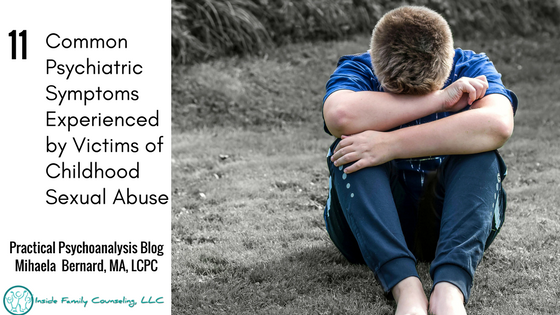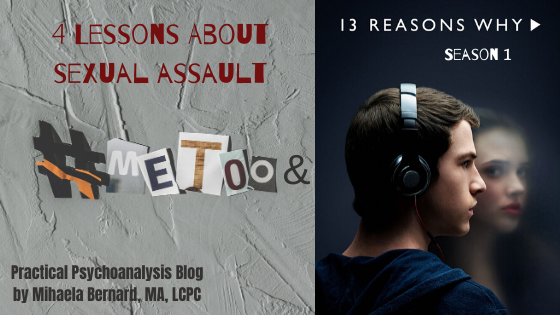For better or worse, psychoanalytic concepts are interwoven into so many theories and schools of thought that it feels overwhelming to simply name them all. The everyday usage of words like “the unconscious,” “Oedipus Complex,” “transference,” “dream analysis,” “projective identification,” etc. serve to help us identify a common way of speaking about clinical issues but can also be used to repress what is really at work in the subject and in the clinic. As patients become more and more sophisticated “customers” of mental health care, we are a facing a crisis of the couch, in which clinical approaches such as DBT and CBT reign over the clinical work we do in our offices and insurance companies demand “a standardization of care” and an “evidenced-based practice” that sometimes complicates things rather than frame them.
When working with the human mind and spirit, however, it is impossible to fit people into simple categories and prescribe them the same treatment with similar outcomes. Two people with the same presenting concern often require different approaches to treatment and usually represent different struggles. Humans are very complicated and so is the way our minds work. I want to offer you a look into our clinical work from the eyes and experience of other like-minded psychoanalytically oriented authors and clinicians.
Below is a list of five books that I have found helpful throughout my training in understanding and applying the theory and practice of psychoanalysis. I have no financial affiliation with any of these authors and I am simply sharing them to illustrate the complexity of the healing process we call psychoanalysis.
1. “A Shining Affliction: A Story of Harm and Healing in Psychotherapy“ by Annie Rogers – This is a book I read as a student in training and one that I recommend to my students today. I met Annie Rogers at my first ever professional conference presentation in Chicago at the 39th Annual Meeting of the International Society for the Psychological and Social Approaches to the Treatment of Psychosis. I presented a case of a psychotic child that I had worked with and discussed the question of the emergence of the subject from within a psychotic symptomatology. I had already read her book and the next one, The Unsayable, for that matter, and admired and respected her for her work and personal experiences with trauma. She approached me after the presentation to let me know how much she enjoyed it and that she missed working with kids. I felt a recognition like never before of a like-minded fellow clinician to another. Needless to say, I admire her work.
“A Shining Affliction” is about Annie’s personal experiences during her own training as a psychologist, while working with a traumatized 5-year-old boy in play therapy, named Ben. The book follows Annie’s own experience of being touched by the work with Ben and discusses the two-fold healing of psychoanalysis. Annie shares with us her own mental health struggles and how she overcame them – we witness her experience with an “object relational” psychotherapist, the harm that can be done by interpretation, her experience being hospitalized and the healing that follows with the right psychoanalytic approach for the patient.
2. “The Unsayable: The Hidden Language of Trauma” by Annie Rogers – this is another favorite of mine, based on true life experiences of childhood trauma and sexual abuse. Based on Annie’s personal experiences with trauma as a child, she writes for us the hidden language of traumatic expression in the clinical practice of psychoanalysis and how she listens and helps other girls to speak about their own unsayable experiences. Annie uses the theory and practice of the French psychoanalyst Jacques Lacan and illustrates its application in her book. She shares ways of thinking with the folks at the Freudian School of Psychoanalysis in Quebec, where I believe she also trained for awhile. If you are one scarred by the unbearable pain of childhood trauma, I believe this book will touch you in ways you have not been touched before.
3. ”Mating in Captivity: Reconciling the Erotic and the Domestic” by Ester Perel – this is a lighter read and mostly meant for people, who wish to understand their sexuality in the context of a long-term relationship. Ester Perel is a well-known name in the field of sexuality and couples work. Her most recent book, “The State of Affairs: Rethinking Infidelity” along with her Podcast “Where Should We Begin?”, where she allows us to experience with her and her clients what couples therapy feels like, demonstrate in the most practical of ways how psychoanalytic theories are applied to people’s relationships and their sex life. If you struggle to maintain your sexual desire with your partner of many years, if sex has died down for you even though you still love your partner, Mating in Captivity offers some insight into the prerequisites for sustaining erotic desire in a committed partnership.
4. “ Schopenhauer’s Porcupines: Intimacy and Its Dilemmas: Five Stories of Psychotherapy” by Deborah Luepnitz – I saw Deborah present at the Chicago Center for Psychoanalysis during one of their monthly Fridays at CCP meetings. I must have been a fellow at the center back then because I remember her speaking to my own confusion between different countries and different schools of thought in psychoanalysis. Her approach struck me as straightforward and logical, incorporating Winnicott and relational theories of psychoanalysis with a modern-day interpretation, post-structuralist approach that also applies to couples work. In the book, Deborah shares five stories of psychotherapy in her own work with individuals and couples and does a wonderful job explaining psychoanalytic concepts in accessible language with practical clinical examples from her work.
5. “ Love’s Executioner & Other Tales of Psychotherapy” by Irving Yalom – unlike the above titles, this book is non-fiction, though inspired by real stories in Yalom’s practice. For those of you, who are learning the art and craft of psychotherapy, Yalom provides a delightful, easy-to-read compilation of stories in psychotherapy that would spark your critical thinking, educate you on psychoanalytic and existential concepts and offer a different look into the change we all experience in the space between therapist (not analyst) and patient.








